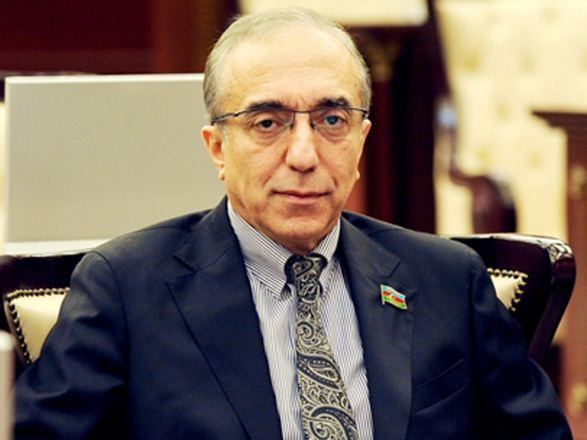Armenia's war crimes - result of asymmetrical warfare against Azerbaijan - MP

By Trend
The war crimes committed by Armenians are a logical result of asymmetrical warfare, which Armenian side is conducting against Azerbaijan, Member of the Azerbaijani Parliament (Milli Majlis) Nizami Safarov said, Trend reports.
The MP made the remark at the conference on ‘Armenia's war crimes against Azerbaijan over the past 30 years’, organized by the Azerbaijani Social Research Center.
He noted that typical indicators of asymmetric warfare are attacks on the civilian population and civilian infrastructure, the use of prohibited means of warfare - cluster, phosphorus munitions, inhuman treatment of hostages and prisoners of war, torture and murder, causing long-term and large-scale damage to the environment, involvement of mercenaries and children in hostilities, etc.
According to Safarov, the investigation of genocide, international crimes, crimes against humanity, the elimination of impunity for war crimes are among the main legal priorities facing the member states of the world community. Among the fundamental problems in the implementation of this priority, one should especially note the definition of the substantive, that is, the material and legal composition of war crimes.
"Significant violations of four Geneva Conventions of August 12, 1949 and the provisions of its first protocol of June 8,1977 are terminologically reflected in the authentic texts of these legal acts in English and French. Serious violations include, on one hand, violations of the norms and principles aimed at protecting the victims of international armed conflicts, and on the other hand, violations of the rules restricting the means and methods of conducting hostilities, or the customs and laws of war.It's these two points that characterize the war crimes committed by Armenian Armed Forces and the puppet separatist regime," he stated.
"For the systematization of such crimes it's necessary to determine that they violate the 'Geneva Law', that is, specific prohibitions established by the four Geneva Conventions and the additional protocols annexed to these conventions. Armenia acceded to the Geneva Conventions and Additional Protocols of June 7, 1993, and since then, compliance with the provisions of these documents has been a legal obligation. However, the violation of international humanitarian law has become a common occurrence for the Armenian side, which doesn't comply with international agreements," Safarov said.
"Among war crimes that Armenia committed are attacks on civilians and civilian infrastructure. The fourth Geneva convention 'On Protection of Civilian Persons in Time of War' categorically prohibits such attacks. According to Part 2 of Article 51 of Additional Protocol I 'On the Protection of Victims of International Armed Conflicts' - 'civilian population and individual civilians may not be the object of attack'. Paragraph 'a' of part 2 of article 85 of this protocol prohibits the transformation of the civilian population and individual civilians into targets of attack, such acts are qualified as war crimes," he said.
The MP noted that among war crimes committed by Armenia, are use of prohibited weapons, and in particular cluster munitions.
"According to the Dublin Convention, which was adopted on May 30, 2008 and entered into force on August 1, 2010, the production, assembly, and use of this type of ammunition is prohibited. Modern international criminal law qualifies the use of cluster munitions as a war crime," Safarov added.
"According to the article 8 of the Statute of the International Criminal Court, 'the use of weapons, ammunition and equipment, and methods of warfare of a nature which cause undue injury or suffering or which are indiscriminate' entails individual international criminal responsibility. In addition, among the war crimes of Armenia, illegal settlement - according to paragraph 6 of Article 49 of the Fourth Geneva Convention 'On the Protection of Civilian Persons in Wartime' - 'the occupying party may not deport or transfer part of its own civilian population to the territory it occupies'. In accordance with paragraph 'a' of part 4 of Article 85 of the Protocol to the Geneva Conventions (Protocol I), this is considered a serious violation of this Protocol, that is, these acts constitute a war crime," he said.
--
Follow us on Twitter @AzerNewsAz
Here we are to serve you with news right now. It does not cost much, but worth your attention.
Choose to support open, independent, quality journalism and subscribe on a monthly basis.
By subscribing to our online newspaper, you can have full digital access to all news, analysis, and much more.
You can also follow AzerNEWS on Twitter @AzerNewsAz or Facebook @AzerNewsNewspaper
Thank you!
